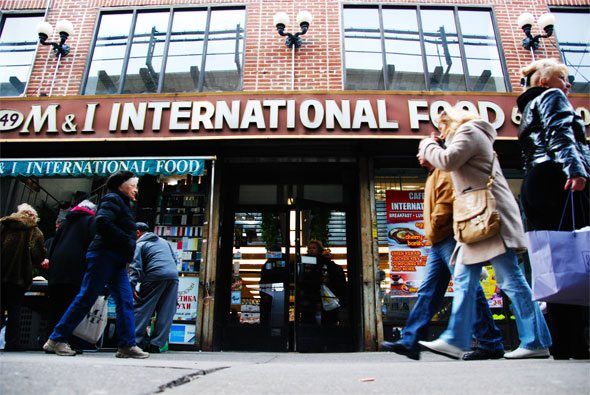NYC Has Largest Russian-Jewish Population In The World, But How Many Are There?

It might seem obvious to those of us that live in Brooklyn’s southern stretches, but research has confirmed it: New York is populated by more Russian Jews than any other place in the world. But putting a number on that population – here and in the country as a whole – remains an elusive task.
Harvard University recently hosted a conference to examine issues of Russian-speaking Jewry, but the event appears to have led to more academic squabbling than certainty.
Some speakers at the event claimed that the nation was home to as many as 800,000 Russian-speaking Jews, while others put it at less than 500,000.
“By any account, the number of Russian-speaking Jews in the United States now probably exceeds those of Russia and Ukraine combined,” said Sam Kliger director of Russian community affairs at the American Jewish Committee. Kliger believes previous studies underestimated the population. “New York today is populated by more Russian Jews than any other place in the world.”
While other academics put the number significantly lower than Kliger and company, there are a few things on which they agree, according to a Forward report:
Demographers and sociologists are largely in agreement on the number of people from the former Soviet Union — about 700,000 — who immigrated to America in the last great wave, between 1971 and 2009. They also agree that about half of that population lives in New York City, with other large communities in Boston, Chicago, San Francisco and South Florida.
The number is important in establishing the size of the nation’s Jewish population – and what percentage of it hails from the former Soviet Union. The percentage ranges from 6 percent to 12 percent, making it a sizable swath of America’s culturally (and theologically) diverse Jewry – and one that has distinct needs.
Those needs speak to the importance of pegging down an accurate number.
“If you are engaging in planning for a segment of the Jewish community, you would like to know where they live and how many they are,” said Barry Chiswick, chair of the economics department at George Washington University. “And if you are setting up a program to facilitate adjustment to the United States or adjustment to being actively Jewish, you want to know how many people you are talking about, so having those numbers is really important for many purposes.”
A point of contention is how the academics are determining who is Jewish. Those on the lower side of the scale count only those who self-identify as Jewish, while those who estimate higher numbers include non-Jewish Russian-speakers who followed Jewish family members to the states.
Here at Sheepshead Bites, we’ve seen battles unfold in the comments section about who is Jewish, who is Russian, who is a Russian Jew, if Russian Jews even exist – and on and on and on. Conventional thinking is that Russian-Americans tend to be more secular, though they hold more conservative ideas and stronger ties to Israel, than their American-born counterparts. And, with most Russian-speakers in the United States being Jews, non-Jews tend to get lumped in with them.
So, since we have so many Russian-speaking Jewish readers, as well as those who live among them, let’s help out these academics. What does it mean to be a Russian-speaking Jew, and how is it different from non-Russian-speaking Jews and Russian-speaking non-Jews?
And, please, be civil, be sensitive, be thoughtful. Provocations, and responses to them, will be deleted.




